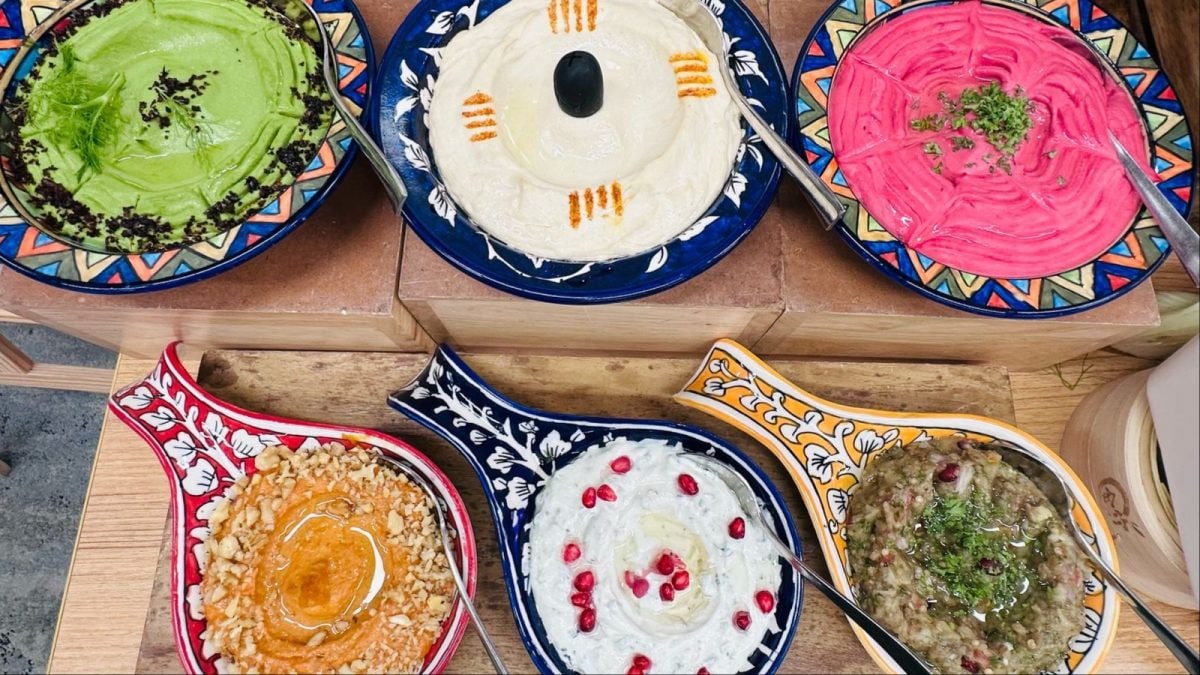Last Updated:
From root-to-stem philosophies to AI-driven food waste trackers, culinary leaders in India are demonstrating how waste can be turned into valuable culinary creations.

Sustainable practices promote zero-waste cooking and create new flavours from scraps. (Photo: Compass Group India)
Food waste is one of the biggest contradictions of our time – millions go hungry while nearly 40% of food produced in India never gets eaten. But a quiet revolution is underway in professional kitchens, where chefs are finding innovative ways to reimagine scraps, conserve resources, and craft dishes that are as sustainable as they are delicious. From root-to-stem philosophies to AI-driven food waste trackers, India’s culinary leaders are showing how waste can be transformed into culinary gold.
Smart Practices for a Smarter Kitchen
“At Compass Group India, we have embraced smarter cooking methods focused on conserving resources and minimising waste,” says Chef Arjyo Banerjee, Chief Culinary Officer, Compass Group India. “For instance, we use water-efficient rice preparation techniques like absorption cooking, saving about 30% more water compared to traditional methods.”
Banerjee explains how their kitchens prioritise operational efficiency without sacrificing flavour. “We practice pressure cooking, which reduces energy consumption and preserves nutrients, and prefer grilling over frying to decrease oil and energy use,” he adds. Vegetable peels become chutneys, bruised fruits turn into smoothies, and even used cooking oil is sent to biodiesel facilities, reducing CO₂ emissions by over 85,000 kg.
Flavours from Scraps
At Jaypee Palace Hotel, Agra, sustainability is more than a practice. It’s a philosophy. “Cooking sustainably means looking beyond the obvious and recognising that every ingredient, whether it is a vegetable peel or a fruit seed, carries untapped potential,” says Executive Chef Ajay Mathur.
Through fermenting, pickling, and dehydrating, Mathur and his team create surprising flavours from what would once be discarded. “A citrus peel can become a zesty seasoning, stale bread can be reborn as crisp breadcrumbs, and vegetable trimmings can transform into nutrient-rich stocks,” he shares.
Hyperlocal and Zero-Waste Creativity
For Chef Divij Malhotra, Sous Chef at Machan, Taj Mahal, New Delhi, sustainability is a canvas for creativity. “Our ingredient philosophy is rooted in hyper-local sourcing and mindful reuse,” he explains. His signature dish, Allium Arc, shows how an onion’s entire life cycle can be celebrated. “Every part, from skins and roots to flesh and trimmings, finds its place,” he says. Onion skins create bouillon, trimmings turn into a silky soubise, and the dish is paired with relishes that highlight the notes of umami, sour, and sweet.
“This is how we shift mindsets, by finding value in the overlooked and celebrating ingredients in their entirety,” Malhotra adds.
Balancing Sustainability and Guest Experience
For Chef Davinder Kumar, President of the Indian Culinary Forum and Executive Chef at Hotel Le Meridien, Delhi, the balance between sustainability and guest expectations is non-negotiable. “Sustainability never means compromising on taste or presentation,” he says.
“Scraps often bring new flavours and textures that elevate the dish rather than take away from it.”
Kumar highlights how watermelon rinds can become tangy pickles and jackfruit seeds can feature in desserts. “Sustainability is shaping how we design menus today – with a focus on plant-based proteins, zero-waste cooking, maximising every ingredient,” he explains.
For home cooks, his advice is simple: experiment. “Use every part of the ingredients you buy, turn peels into soups, stems into sauces, and seeds into desserts. Zero-waste cooking is about discovering new flavours and getting creative in the kitchen.”
Sustainable cooking is no longer a niche practice. It’s becoming the heartbeat of modern kitchens. By reimagining peels, stems, and seeds as possibilities instead of waste, chefs are proving that creativity and responsibility can go hand in hand. From leveraging technology to crafting inventive recipes, these culinary leaders are turning kitchens into innovation labs where nothing goes unnoticed or unused.
Delhi, India, India
September 11, 2025, 13:20 IST







